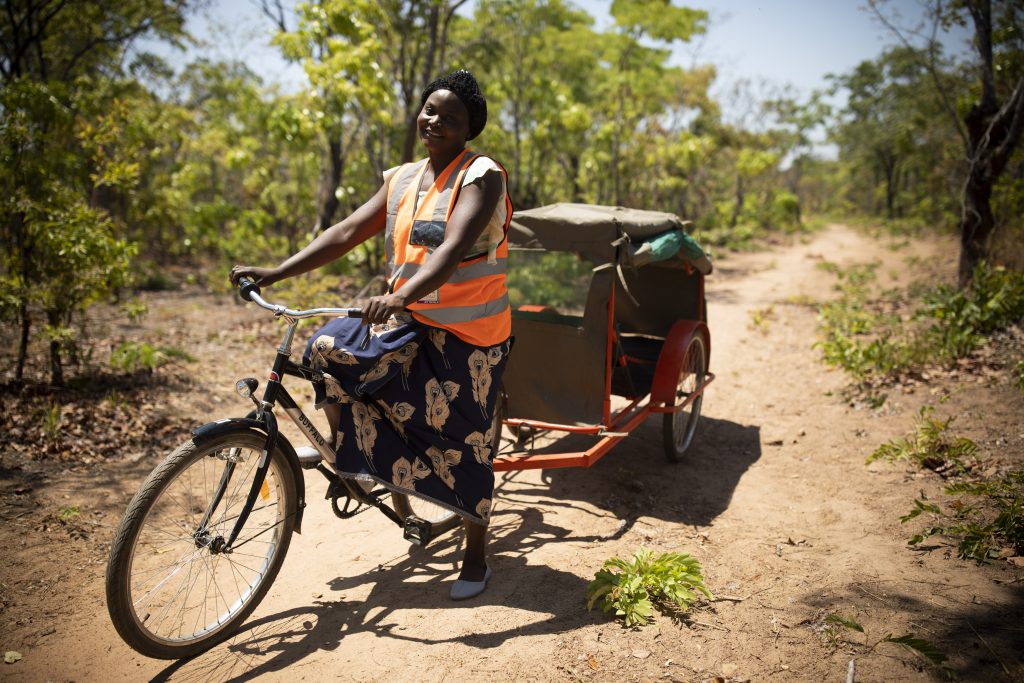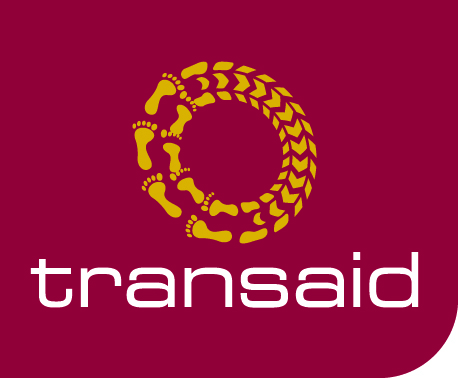
World Malaria Day 2023: Delivering lifesaving interventions when they are most needed
World Malaria Day is a day to raise awareness of the need to tackle malaria around the world, and to celebrate the achievements of countries that are approaching, and achieving malaria elimination.
To mark the day, we’re sharing stories from MAM@Scale, the innovative community-led programme designed to address the lack of severe malaria case management capabilities and access to treatment options in rural Zambia. This is through the delivery of quality assured pre-referral rectal artesunate suppositories (RAS), injectable artesunate at healthcare facilities and the implementation of bicycle ambulances as a form of emergency transport system (ETS).
MAM@Scale is now reaching ten districts and more than one million people. Minerva is a bicycle ambulance rider and custodian in Mupola, she plays a vital role in connecting her community to healthcare facilities using the vehicle. Below she tells her story, and explains how the programme has and continues to save lives in her community.
Minerva is forty-two years old and has nine children. She was pregnant with her first child Ruth, over ten years ago. When we met in her village of Mupola, Serenje District, Zambia, she said, “it was my first pregnancy, and I was very scared because there were complications.”
For any expectant mother, complication during any pregnancy is a scary thought, but when you live far from a healthcare facility, it is a terrifying situation to face.
“The Community Health Volunteers (CHVs) in my village organised money through the food banks, and hired a car for me to travel to the nearest healthcare facility, so that I could deliver safely.”
But, this is not a sustainable option for most women, as finding motorised transport to travel to a healthcare facility is not always possible or easy.
CHVs are the backbone of the health system in rural Zambia, where they provide invaluable health advice to their communities, which are often located far from healthcare facilities.
Minerva was touched by the support that she received from the CHVs, “the experience that I had made me realise that it is very important for me to become a bicycle ambulance rider, and also the custodian of the vehicle in my community, so that I can help others in the same way that I was helped.”
As part of the MAMaZ Against Malaria (MAM@Scale) programme, the bicycle ambulance is a form of emergency transport system (ETS) in Zambia, providing a vital link between rural communities and health services. ETS riders are volunteers who serve their communities by using the bicycle ambulance to take people to healthcare facilities in medical emergencies.
“When the project team were looking for a custodian (a person responsible for storing and ensuring the condition of the bicycle ambulance is maintained) in my community, I volunteered, and when they were looking for ETS riders, I volunteered. If they were able to save my life and the life of my first born, I can also save another woman’s life, or the life of another child.”
Minerva was one in a group of women who worked for two months to construct a shelter for the bicycle ambulance in their community. In the first month, they molded the bricks, and in the second month, they constructed the shelter and put a roof over it.
“The shelter is a safeguard to the bicycle itself, both security wise, and also as a means for its longevity. If we leave it in the sand, the canopy will bend and the tires won’t last long.
“We keep lots of animals around in our community, so if the bicycle ambulance is not in a shelter, you will soon find goats and chickens playing on it! Then, the dignity of the bicycle ambulance is not there.”
Minerva said, “the bicycle ambulance has helped to save the lives of so many children.” She added, “there have been times when someone comes and knocks at my house in the early hours of the morning, and their child is so unwell.”
She recalls Betshebar Mwape arriving at her house very early in the morning with her son Best, who was convulsing. Minerva took him to the nearest CHV, Noah, who completed a Rapid Diagnostic Test (RDT) to check whether Best had malaria. When Best’s RDT came back positive, Noah immediately administered two doses of rectal artesunate suppositories (RAS), and a referral note was written for the nearest healthcare facility.
“Using the bicycle ambulance, we travelled to the healthcare facility and Best was examined by the clinical officer and given a course of injectable artesunate.”
Best was later discharged with the appropriate follow up treatment, and recovered from severe malaria.
“When a bicycle ambulance rider returns and reports that the child is ok, it gives us hope as a community that we can continue to do more.”
Read Minerva story HERE.
Find out more on the Transaid’s website HERE.

Comments are closed.
